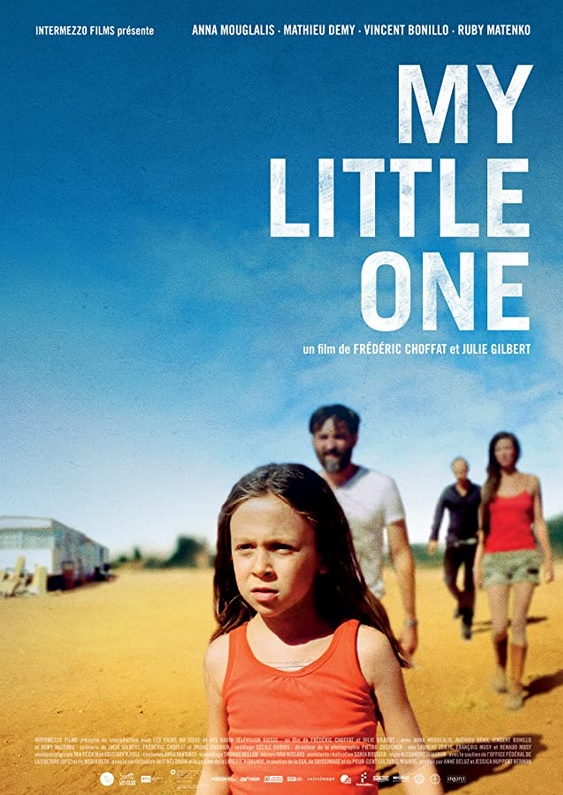In our previous review of Pleased To Meet Me (2013), we discussed the analogous career travels of musician-actor John Doe and Sam Raimi-bred Bruce Campbell. Campbell resigned himself to being an actor that would never book a leading man role in major studio picture; that his career would consist of smaller support roles in A-List pictures, while maintaining a leading man status in B-Movies.
And as result of his iconic status from The Evil Dead, one day, Bruce got a call to star in La Patinoire, aka The Ice Rink (1998), a French rom-com about an inexperienced film crew producing a hockey film — with Campbell starring as Sylvester, a fish-out-of-water American actor cast as the team’s goalie, who falls in love on-screen and off-screen with his leading lady.
And so it goes with this Swiss-French co-production casting John Doe in a minor support role as a musician scratching out a living in a dusty Arizona casino. Thus John, like Bruce (thanks to The Evil Dead), is cast as the lead in self-produced indies like Pleased to Meet Me, or he’s cast in an overseas, major studio film as a support player — courtesy of his iconic tenure with his Los Angeles punk band, X. And in the U.S., John trades chops with such A-Listers as James Woods, Jennifer Aniston, and Ben Affleck in Salvador, The Good Girl, and Forces of Nature, respectively.
And, because of the Chin that Kills, I rented The Ice Rink. And because of Doe, I sought out this road movie (during its festival release) set in the Navajo Nation of the American Southwest that stars renowned French art house actors Vincent Bonillo, Mathieu Demy, and Anna Mouglalis.

— Jade
A decade ago, the now estranged brothers Alex and Bernardo (Bonillo and Demy) lived on the coast of Mexico in a menage-a-trois, spiritual existence with Jade (Mouglalis), until a tornado destroyed their mutual business — and Jade disappeared. And while the still dreaming, 40-something Alex drifts in the memories of his youth, Bernardo became a responsible husband, father, and architect in Geneva, Switzerland.
The brothers are forced to reconcile as strangers-in-a-strange-land when they discover Jade now resides in Arizona. Dying from cancer, she wants the brothers to take care of Frieda (who is possibly either of their daughters), her now 10-year old, half-Sioux, half-American and half-Swiss daughter (well played by Disney series actress Ruby Matenko, who’s also appeared in the U.S. cable series Baskets and Veep). Jade makes a living as a singer known as “The Frenchie” in a slot machine casino with fellow musician Matt (John Doe). The film also stars local Navajo actors Zoël Zohnnie (as a medicine man who practices white-man medicine) and Kody Dayish (as a youthful hashish dealer).
My Little One comes from a place of erudition, with co-writers/directors Frédéric Choffat and Julie Gilbert drawing on their connections to the Navajo desert and its indigenous peoples as result of Choffat growing up in the Moroccan desert, while Gilbert, as result of her mother’s career as an ethnologist (a branch concerned with sociocultural anthropology), spent her youth among the indigenous peoples of Canada, Mexico, and U.S.
The indigenous aspect of the film — both of the peoples and landscapes — beautifully captured by cinematographer Pietro Zuercher, is maintained with Navajo native tongues (not subtitled) amid the English and French (subtitled) speaking cast. While I’d would have enjoyed watching Doe in a larger role in such an exquisitely-made film (he’s a fine actor deserving of such a casting), this tale of the lost and confused fear and loathing in an exotic land is still a joy to watch.
As with the unfurled existentialism in the dusty, lost landscapes of Border Radio — John Doe’s acting debut from all those years ago — a film that pinched from the ’70s cult films Easy Rider, Vanishing Point (John starred in the ’90s remake) and Two-Lane Blacktop, My Little One harkens the French New Wave films of old to remind us of Michelangelo Antonioni‘s The Passenger (1975), as well as the ’80s American independents Stranger Than Paradise (1984), Down by Law (1986), and Mystery Train (1989) by writer-director Jim Jarmusch.
A hit on the festival circuit — where it was nominated as “Best Foreign Independent” at the 2019 Golden Trailer Awards — in France, Germany, and Switzerland before its European theatrical release, Los Angeles-based Cinema Libre Studios acquired the rights to distribute the film in the U.S. in the wake of its U.S. premiere at the Miami Film Festival. Other films on the studio’s roster include Imprisoned starring Lawrence Fishburne, the rock-doc Creating Woodstock, and the recently U.S.-released historical import from China, Enter the Forbidden City.
About the Author: You can learn more about the writings of R.D Francis on Facebook. He also writes for B&S About Movies and publishes on Medium.

You must be logged in to post a comment.